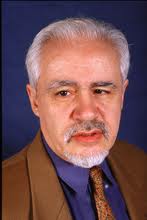May 11, 2006
 Automated quality control for production lines in industry sectors such as Automotive, Chemicals, Electronics, increasingly rely on real time analysis of multi-sensors dataflows to detect and identify abnormal situations or to anticipate critical risks.
Automated quality control for production lines in industry sectors such as Automotive, Chemicals, Electronics, increasingly rely on real time analysis of multi-sensors dataflows to detect and identify abnormal situations or to anticipate critical risks.
Explicit models for multi-sensors behaviour or for their functional dependence on contextual features are too costly or unfeasible, hence Automatic Learning of empirical models play a crucial role to generate multi-sensors anomaly diagnosis, detect causes of defects, and anticipate critical events.
Learning algorithms and evaluation of their generalization capacities can now rely on efficient approaches: empirical complexity estimates, improved Support Vector Machines, diagnosis boosting by convex combination of classifiers, variables selection by robust conditional entropy techniques.
But on line decision algorithms calibrated by automated learning present more challenges to autonomously maintain their pertinence. Indeed contextual and performance changes need to be detected on line in order to launch corrective upgrades of the learned internal parameters.
We describe concrete data driven empirical modelization methodologies for automated decision based on multi-sensors. We present a few applications such as sounds identification in highly noisy backgrounds, reliability of robotized welding, etc.
Robert Azencott (CLMA ENS Cachan)


